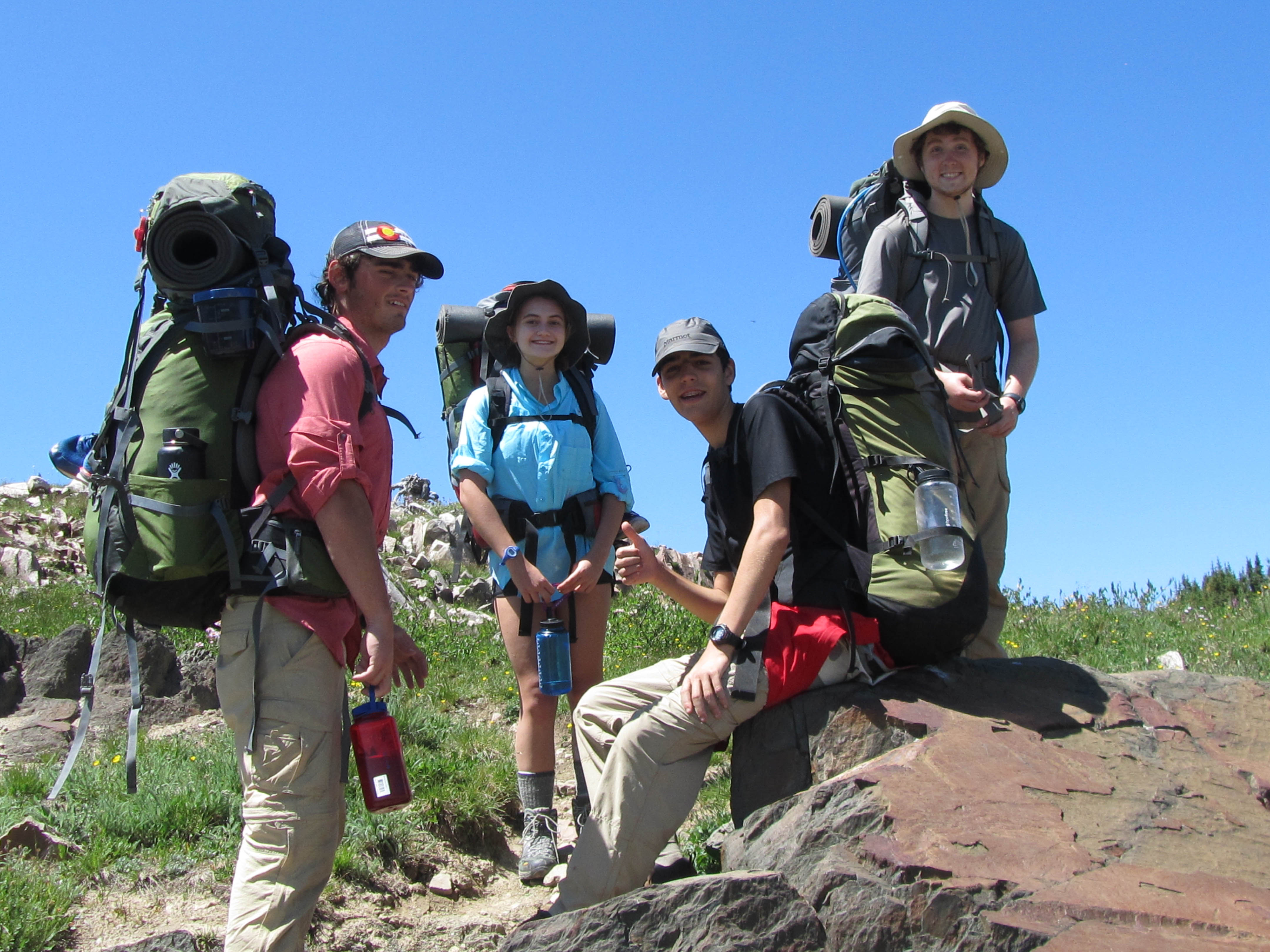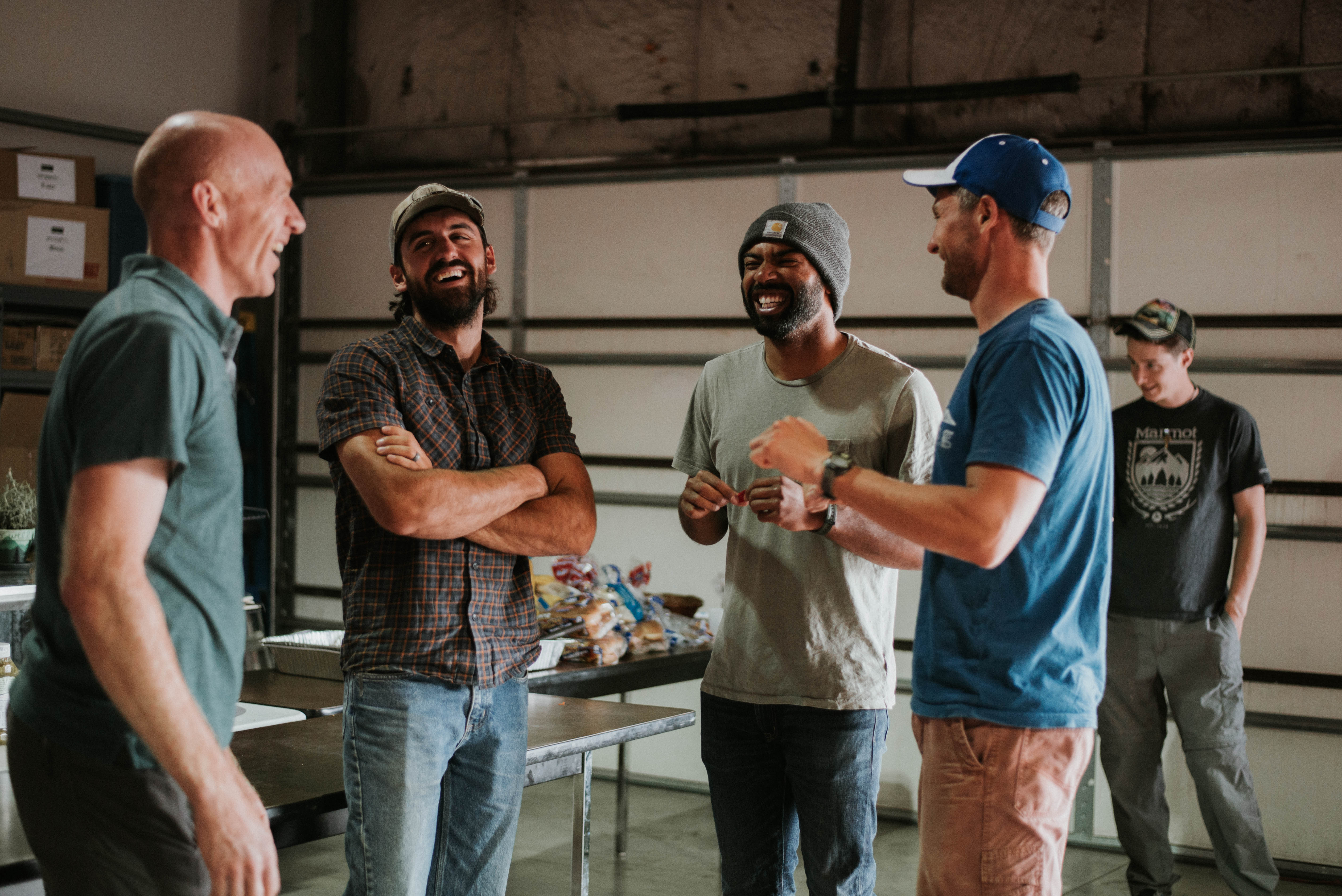The Importance of OSV.

Every community is unique. Each individual brings different strengths and weaknesses to the group, and each group faces distinct challenges during their time together. SROM seeks to foster a healthy and transformative culture, both in our office and in the field.
A large part of that culture is encouraging an atmosphere in which individuals are Oriented, Safe, and Valued or OSV.
When people are OSV, they are able to feel connected to the group at a deeper level.

One of the core components of a SROM course is authentic community. When people are able to foster an atmosphere of authenticity and genuine love for one another, deep transformation can happen.
One of the tools SROM uses in helping foster authentic community on course is encouraging an OSV culture – a culture in which students and instructors are oriented, safe, and valued. SROM full-time staff send course information, follow-up with students and parents regarding course preparation, and answer questions about courses to help OSV students before they arrive at the building.
Once students arrive at SROM, their instructors then describe and model an OSV culture immediately at the beginning of the course, and intentionally refer to it daily as the culture is being ‘caught’ by the students.

What does it mean to be Oriented?
Being Oriented is rather simple: do you know what is going on? Here at SROM, that can be as simple as a check in on what the route is for the day and those logistics (milage to be hiked, elevation gain, lessons needing to be taught, etc). But in daily life, getting oriented might be a bit different.
For example, you might have a job. Kids need to get to school, or sports events. There might be an appointment you have that day, etc. Getting oriented yourself and orienting others is as simple as communicating what the major events that are supposed to happen that day in order to plan for them. So we are responsible for communicating the events of our day to others. But also, you are responsible for asking the people at work, on a course, or at home if you feel less than sure about the plans.
Creating a Safe Space
While physical safety is always the goal, the Safe in the OSV culture is not just referring to physical safety, but a much larger concept. It is important that all of our staff and students experience emotional and spiritual safety too. Because individuals who do not feel emotionally or spiritually safe are less likely to be fully engaged and trust their environment.
That is why we work hard to foster an environment of open, honest, and humble communication. Often it is difficult to perceive if someone feels unsafe or unvalued in the moment. But, good debriefing time and creating space and the invitation for people to express their concern goes a long way to helping people feel safe and trust again.
How to accomplish this is also simple: allow for honest feedback and ask open ended questions.
In creating a space for people to respond without censure, shame, or guilt, when you ask hard questions people will give you an honest answer about how they felt. Then, validate their feelings/emotions, and ask follow up or clarifying questions to their response.
Such as, “Sue, I get the sense that you were really frustrated by that. Is that true? [Yes] What could I have maybe done instead to help you feel safe in this situation?”
In this way, you are helping repair the broken trust with that person and reaffirming that they are in safe environment with you.

Everyone Has Value
At SROM, we recognize that each person is created in the image of God and has intrinsic value. Period. We are all Imago Dei or image bearers of God. Each person who walks through our doors is accepted, valued, and loved regardless of skill or ability level.
While society may demand that individuals prove, produce, or perform, we recognize and affirm the inherent value in each person. When an OSV culture is established, people are able to practice seeing each other as children of God and submitting to the Christ in one another. In essence, students learn what it means to be the body of Christ to one another.
It is worth noting the distinct difference between paying lip-service to valuing others, and truly valuing someone despite their quirks, differences, or sins. It’s easy to merely say that each person is valuable, but it is much harder to practice valuing and honoring each person! However, it is important to have a clear understanding of what valuing (i.e., loving) one another looks like so that valuing doesn’t translate as enabling.
For example, a student who consistently is not ready on time because they are slow at packing their bag may complain that the group is not valuing them. In reality, they are not valuing the group by choosing not to take responsibility for themselves by working harder (e.g., begin packing sooner, wake up earlier, learn to be more efficient when packing) to be ready on time.
OSV culture creates a space where people are shown respect and honor.
An environment that establishes and maintains a culture of OSV towards one another will empower people, not enable poor behaviors and attitudes. An empowering culture has the potential to be transformational and bring God’s Kingdom here to Earth.
WANT TO EXPERIENCE MORE?
Check out an opportunity to fully unplug and go on a wild adventure – connecting with God, others, and your purpose.